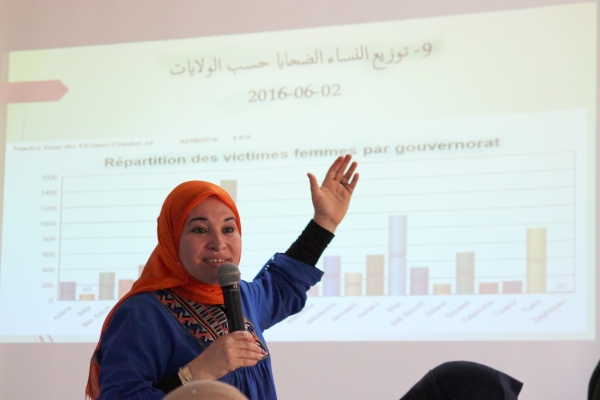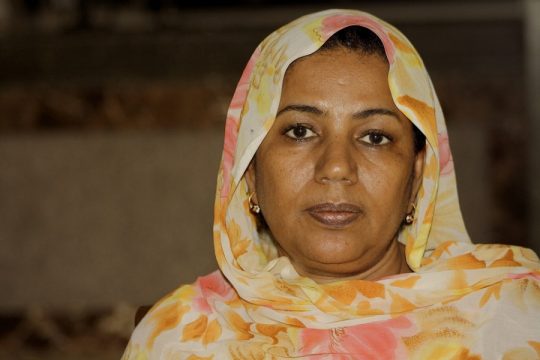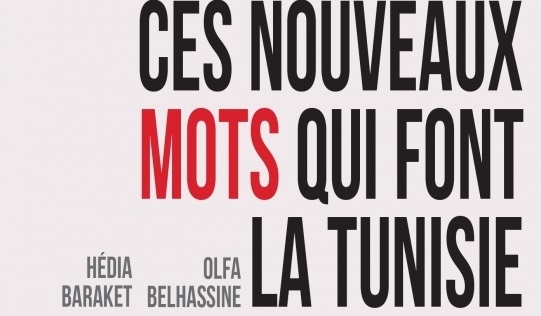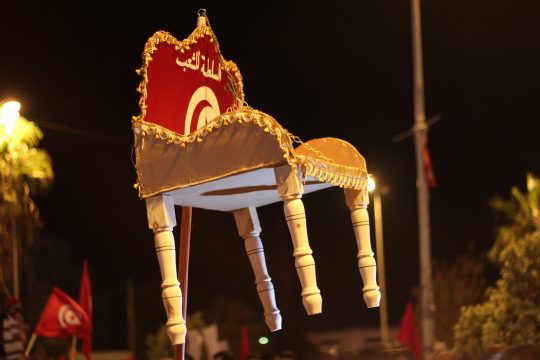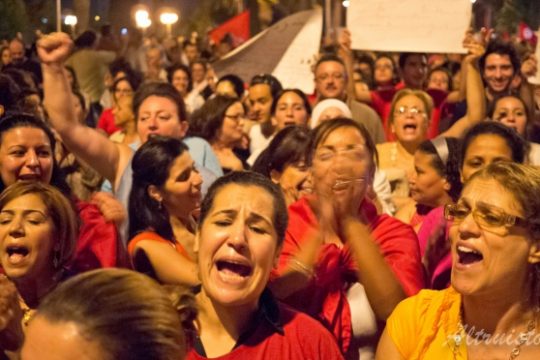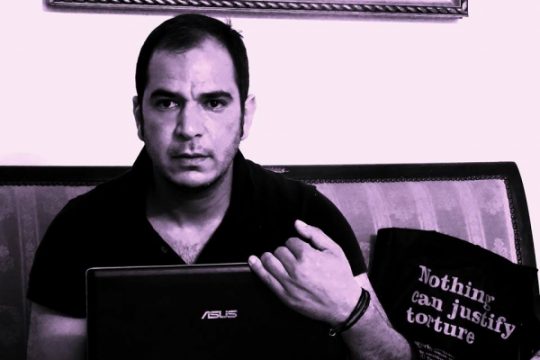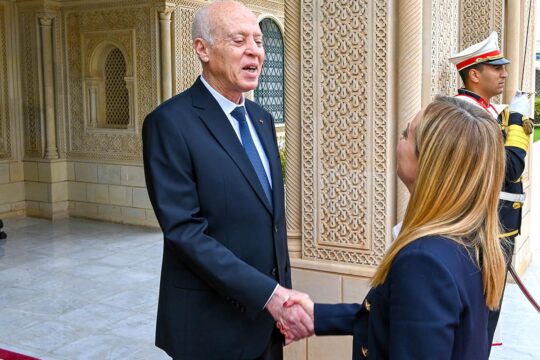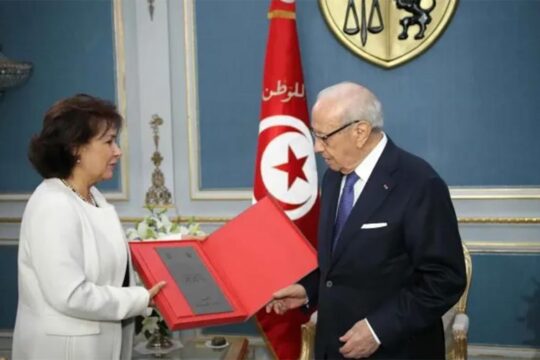Thanks to the efforts of several civil society organizations in Tunisia, the number of cases of women victims filed with the country’s Truth and Dignity Commission has risen significantly from 5% to 21%. With the deadline for filing complaints set at June 15, 2016, it is high time.
On June 3, about 20 women rushed to file their complaints at the offices of the Truth and Dignity Commission in the Montplaisir district of Tunis. The deadline for victims to file cases, a process that started in December 2014, is June 15. Some 46,500 cases have been filed, of which 8,800 by women, or nearly 21% of the total complaints on human rights abuses committed between July 1955 and December 2013. This percentage, which was only 5% at the beginning of the campaign, has risen significantly in the last few months thanks to the efforts of civil society, especially the Association Tounissiet (Tunisian women) and the International Center for Transitional Justice (ICTJ). Association Tounissiet went from door to door to find victims and persuade them to take part in the transitional justice process by filing their stories. ICTJ trained eleven women’s associations, involved them in communication on the rights of women victims and the urgency of filing their cases.
“Our biggest fear at the Commission is that, like in Morocco, we will find ourselves faced with women rejected from the transitional justice process because they missed the deadline for filing complaints,” says Oula Ben Nejma, president of the investigations committee.
Supporting the most vulnerable
"We know that the taboos weighing on women in this patriarchal society are tough,” said Ibtihel Abdellatif, president of the Commission’s committee on women. “The social heritage is very heavy. It is often considered a feat if a woman travels to one of our offices. That is why we make sure women’s depositions and their private hearings are kept strictly confidential, and we provide all the guarantees we can to reassure them. Keeping their cases confidential is one of our priorities. Their testimony is taken by a woman unless they ask for a man, in the case that their torturer was a woman. We continue to monitor the most vulnerable women on the psychological, social and economic level and we refer the most traumatized to Nebras Rehabilitation Institute for Survivors of Torture.”
Abdellatif was speaking at a May 3 workshop on “the role of civil society in supporting women victims and perspectives for collaboration between civil society organizations and the Truth and Dignity Commission”. It was organized at the Commission, in collaboration with the United Nations Development Programme (UNDP), the office of the UN High Commissioner on Human Rights, UN Women and ICTJ.
Ibtihel Abdellatif lists violations suffered by women, notably under the regime of Ben Ali, who has been in exile in Saudi Arabia since January 2011. Some were direct victims when they were in political opposition and some indirect victims when a spouse, a father or brother suffered police persecution. “Torture, rape, physical violence, arbitrary arrest, being deprived of work, of the right to health and education, police harassment,” are some of the things they suffered, she says. “But social stigma is perhaps the heaviest thing to bear for many women who been left by fiancés coming out of jail and condemned for life by their families for the alleged crime of `dishonour`, of which they are not guilty. For all these reasons, the victims are still in a terrible psychological state.”
To rest and forgive
Others are continuing the fight, either to get reparations, set the record straight or to know the truth about the responsibilities of the State and its employees in the dark events of Tunisia’s history. Leyla, sister of well-known cyber-dissident Zouheir Yahiaoui who died in 2005 after being jailed, says the Ben Ali regime deprived her of “life, youth, freedom of movement, friends and financial resources” because of her brother’s opinions. She has filed an individual case with the Truth and Dignity Commission and another one with her family.
Houda, who was forced into exile with her husband for 20 years to escape the persecution of her spouse, came to update her case file. She is an activist in Tounissiet and is also working in support several women victims. A group of women victims, of which she is part, has just filed a collective complaint, signed by about 200 women, against abuses of “Circular 108”, which bans the wearing of the veil in public places. It is a provision introduced under the dictatorship to harass and put pressure on Muslim women, notably forbidding them access to university and posts in public sector employment.
“This Circular is still part of the rules and is used from time to time to sack women in public service,” says a former woman victim. “How is that possible five years after Ben Ali fled?”
Lawyer Lamia Farhani is finalizing a complaint by some one hundred mothers of “martyrs” and people injured in the Revolution, who are claiming their right to know the truth about who shot at their children.
The cases concerned have been shunted from one court to another since the beginning of 2011. Verdicts were finally pronounced two years ago, and all the police and soldiers accused of complicity in killing or injuring demonstrators were released for lack of evidence.
“After five years of fighting, which have worn the families out, our hopes have been rekindled with the setting up of the Special Chambers,” says lawyer Farhani, herself the sister of a “martyr” of the Revolution. “These Chambers are expected in the coming months to retry the security agents accused of firing on protesters between December 2010 and the end of January 2011. Justice will then be delivered to the mothers, who want the machinery of State to recognize its excesses and its violence, so that they can rest and forgive.”



